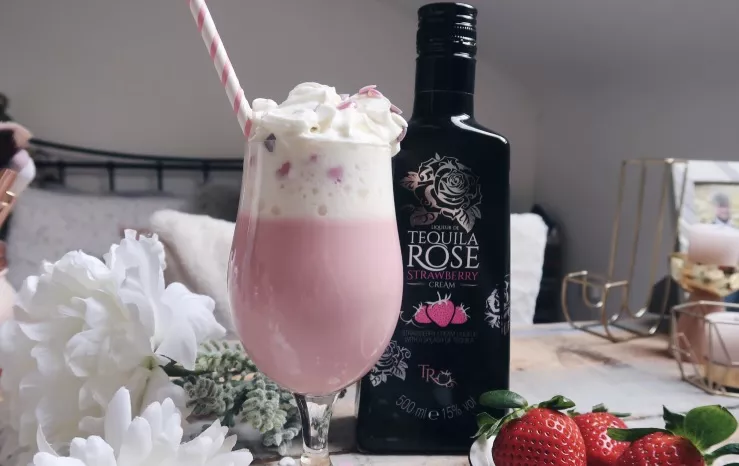Cocktails are a popular choice in social gatherings, bars, and restaurants worldwide. While many people enjoy these mixed drinks for their taste and ability to liven up an evening, not all cocktails are created equal in terms of their health impact. When considering the question “What is the most unhealthy cocktail?” several factors come into play, including ingredients, sugar content, calorie count, and potential adverse health effects. Understanding the components and nutritional aspects of various cocktails can shed light on which ones may be less favorable for those seeking healthier drinking options.
Exploring the landscape of cocktails reveals a myriad of options, each with its own blend of ingredients and nutritional profiles. However, certain cocktails stand out for their high-calorie content, excessive sugar levels, and potentially harmful additives. To identify the most unhealthy cocktail, it’s crucial to analyze different types of drinks, their ingredients, and the impact they can have on one’s health.
Factors Contributing to Unhealthy Cocktails
Several factors contribute to the healthiness or lack thereof in a cocktail. Key components such as the types and quantities of alcohol, mixers, added sugars, and other ingredients significantly influence a drink’s nutritional value. The use of sugary mixers, syrups, and liqueurs can escalate the calorie count and sugar content of a cocktail, making it less healthy overall.
One of the primary culprits behind unhealthy cocktails is the high sugar content found in many popular mixed drinks. Cocktails often contain various syrups, fruit juices, or soda, contributing to an increased sugar intake. For example, drinks like the margarita, Long Island iced tea, or piña colada typically contain significant amounts of sugar-laden mixers, leading to high calorie and sugar levels.
Additionally, the type and quantity of alcohol used in a cocktail play a crucial role in its overall health impact. Certain liquors, especially those with higher alcohol content, contribute more calories per serving. Combining these with sugary mixers amplifies the calorie count, making the drink more calorically dense and potentially unhealthy when consumed in excess.
See Also: Is Fruit Cocktail Bad for You?
Caloric Impact of Cocktails
Understanding the caloric impact of cocktails is essential in evaluating their healthiness. Cocktails can vary widely in caloric content based on their ingredients and serving sizes. For instance, a standard serving of a frozen margarita can contain over 500 calories due to its mix of tequila, triple sec, lime juice, and added sugars. Similarly, a creamy White Russian made with vodka, coffee liqueur, and heavy cream can pack around 400 calories per serving.
Certain cocktails, known for their extravagant ingredients and larger serving sizes, can contain an excessive number of calories, contributing to weight gain and other health issues when consumed regularly. Drinks like the mudslide or the mai tai often contain creamy components or multiple types of liquors, leading to a higher calorie content that can be detrimental to one’s health when consumed frequently.
Impact of Added Sugars
The excessive consumption of added sugars is a growing concern for public health globally. Cocktails often contain syrups, fruit juices, or soda, which significantly contribute to their sugar content. Excessive sugar intake has been linked to various health problems, including obesity, diabetes, heart disease, and dental issues.
The World Health Organization (WHO) recommends limiting added sugar intake to less than 10% of daily calories. However, many cocktails surpass this limit in just one serving. Sweetened drinks like the mojito, made with sugar, mint, lime juice, and rum, or the cosmopolitan, which often contains sugary fruit juices and flavored liqueurs, can easily exceed the recommended daily sugar intake, potentially posing health risks for frequent consumers.
Hidden Health Risks in Cocktails
Beyond high calories and sugar content, cocktails can harbor other hidden health risks. Artificial additives, food coloring, and excessive sodium from certain mixers can have adverse effects on health. Some colorful cocktails derive their vibrant hues from artificial dyes, which may have links to allergic reactions or behavioral issues in some individuals.
Furthermore, the combination of alcohol and certain mixers or medications might lead to adverse reactions or increased side effects. Cocktails made with energy drinks or caffeine-containing mixers can mask the effects of alcohol, leading to excessive consumption and potential health risks.
Healthier Alternatives and Moderation
While certain cocktails may rank as the most unhealthy due to their high calorie, sugar, and additive content, it’s essential to recognize that moderation and healthier alternatives exist. Opting for simpler cocktails with fewer ingredients or choosing drinks with fresh juices, herbs, or natural sweeteners can reduce the overall negative health impact.
Choosing cocktails that incorporate fresh fruit juices, herbs like mint or basil, and using natural sweeteners like agave syrup or honey instead of refined sugars can create a healthier drinking experience. Drinks like the classic gin and tonic with fresh lime or a vodka soda with a splash of cranberry juice can offer a lighter, lower-calorie option compared to more sugary or creamy cocktails.
Moreover, moderating alcohol consumption and being mindful of portion sizes can significantly impact the overall healthiness of drinking cocktails. Enjoying cocktails in moderation, alternating with water, and being aware of one’s alcohol tolerance are crucial for maintaining a healthy balance while socializing or indulging in alcoholic beverages.
Conclusion
In summary, the question of “What is the most unhealthy cocktail?” encompasses various factors, including high calorie and sugar content, potential additives, and overall impact on health. Cocktails with excessive sugars, creamy components, and multiple types of alcohol tend to rank higher in terms of being less healthy options. However, making informed choices, opting for simpler recipes, and consuming alcoholic beverages in moderation can mitigate the negative health effects associated with cocktails. Ultimately, understanding the nutritional aspects of different cocktails empowers individuals to make healthier choices while still enjoying the social experience of sipping on a well-crafted drink.


